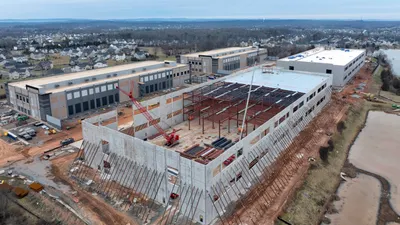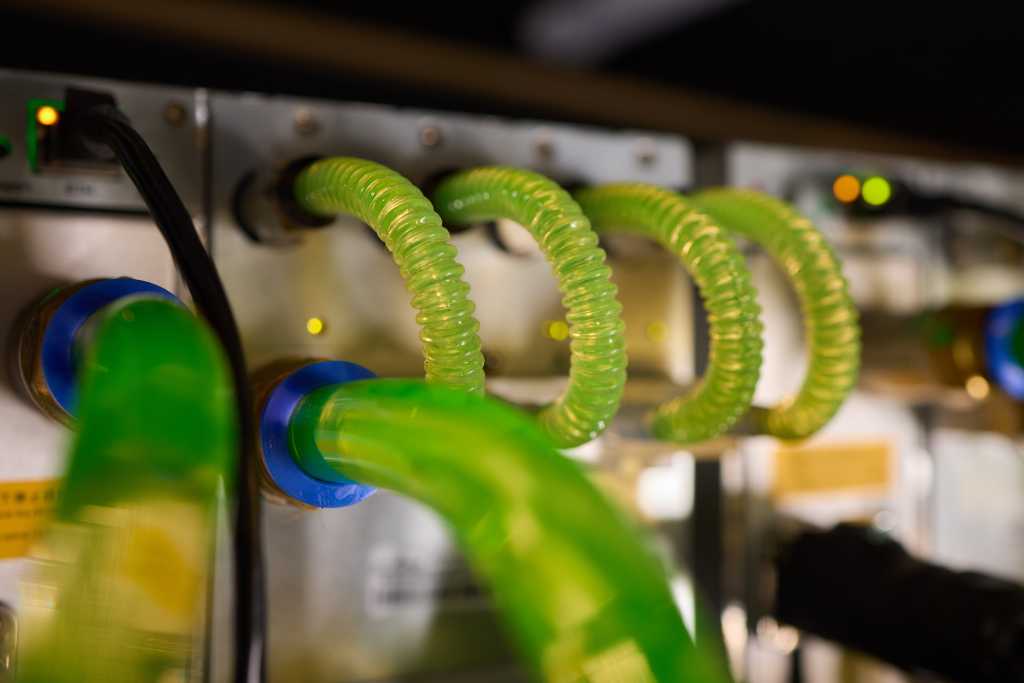
Dive Brief:
- The U.S. Nuclear Regulatory Commission has approved NuScale Power’s design for a 462-MW small modular reactor power plant, the U.S. nuclear regulator said on Thursday.
- NRC completed its technical review of NuScale’s US460 in less than two years, ahead of schedule and under budget, it said. The US460 is based on NuScale’s 12-module, 600-MW US600 design, which NRC approved in 2020 after more than three and a half years of review.
- The newly-approved design’s larger modules will help NuScale power plants more effectively serve hyperscale data center customers, CEO John Hopkins told investors in November. Data centers represent a key segment for the company as it looks to lock down its first U.S. customer this year.
Dive Insight:
The NRC approval came earlier than expected, according to estimated completion timelines provided by NRC and reiterated by Hopkins on several recent investor calls. NuScale had anticipated a final decision by July, Hopkins said on May 12.
The approval could be crucial as NuScale moves through “advanced commercial dialogue with major technology and industrial companies, utilities and national and local governments,” Hopkins said in March.
“Once we get finalization” for the 77-MWe design, “we’re off to the races,” Hopkins said.
NuScale has not announced a binding customer deal. But in its first-quarter investor presentation, the company said it expected a “firm customer order” by the end of this year.
NuScale manufacturing partner Doosan has 12 modules in production now at its South Korea foundry and could deliver up to 20 per year in the near term, Hopkins said on May 12. Its first power plant could be operational by the end of 2030 if it gets a finalized deal soon, he added.
For now, NuScale is acting as the nuclear technology subcontractor to Fluor Corp. on a 462-MW power plant project in Romania that could reach a final investment decision early next year.
Though it has decreased its stake over time and has said it will continue to do so, Fluor remains a major shareholder in NuScale.
NuScale previously had an agreement with Utah Associated Municipal Power Systems for a 462-MW commercial power plant at Idaho National Laboratory. Known as the Carbon Free Power Project, that plant — like the design NRC approved on Thursday — would have used six 77-MW modules. But it was canceled in November 2023 as NuScale’s target power price rose toward $90/MWh and interest from UAMPS members failed to materialize.
Thursday’s approval means the US460 meets “applicable agency safety requirements” and can be referenced in future reactor construction permit, operating license or combined license applications, NRC said.
But before building and operating a US460 plant, NuScale, its development partner ENTRA1 Energy or another entity would still have to apply for one or more of those permits or licenses. That process can take 30 months or longer at present, NRC says.
Still, NRC’s approval positions its technology as “the most near-term American SMR power solution,” NuScale said on Thursday. In addition to being the only SMR with NRC design approval, NuScale’s SMR technology is one of the few that runs on conventional low-enriched uranium rather than more scarce high-assay, low-enriched uranium.
The approval boosts NuScale amid broader momentum for U.S. advanced nuclear companies. On May 23, the Trump administration issued four executive orders to expand reactor deployments, ease regulation and shore up domestic fuel and equipment supply chains.
One order would require NRC to review new reactor applications within 18 months, significantly shorter than current timelines. Another would expand the roles of the departments of Energy and Defense in reactor licensing and deployment, potentially creating new pathways for design approvals and expedited siting of power plants on federal land.
The GOP budget proposal that passed the House on May 22 gutted most clean energy tax credits while sparing the nuclear industry. Though the Senate is likely to change the bill before it comes up for a final vote, the House-passed version allows reactor projects that begin construction by 2028 to qualify for the full value of the Inflation Reduction Act’s technology-neutral investment and production tax credits.




















